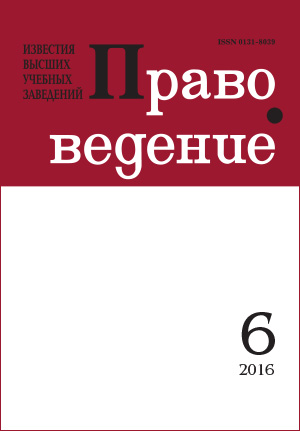Prevention and Punishment of Crimes Against Humanity: Problems of Drafting A New International Convention (Review of The Work of The UN International Law Commission)
Abstract
This article deals with the most important problems of the activity of the UN International Law Commission in preparing the draft Convention on the Prevention and Punishment of Crimes against Humanity. Effective international response to the scourge of crimes against humanity is one of the main objectives of the international community as a whole. As indicated in the Preamble to the Rome Statute of the International Criminal Court, this type of core crimes must not go unpunished and their effective prosecution must be ensured by taking measures at the national level and by enhancing international cooperation. Adoption of the Convention on the Prevention and Punishment of Crimes against Humanity can play a significant role in achieving this goal. This Convention would extend the rule of law principle as regards the crimes against humanity beyond the norms of the Rome Statute. It is commonly known that the International Criminal Court currently exercises jurisdiction over three categories of international crimes: genocide, war crimes and crimes against humanity. First two crimes were codified by specialized Conventions in 1948 and 1949 respectively, soon after the end of World War II. Unlike genocide and war crimes, the norms regarding the crimes against humanity have primarily been developed through the evolution of customary international law. The fact that since 1919 there has been no specialized convention on crimes against humanity is an evidence a serious gap in the contemporary international law. Only in 2013 at its sixty-fifth session the UN International Law Commission decided to include the topic «Crimes against Humanity» in its long-term working program. Then, at its sixty-sixth session in 2014 the Commission decided to include this issue into its current working program and to appoint a Special Rapporteur. Drafting and adoption of the specialized convention on crimes against humanity concerning one of the core crimes has two main aspects: firstly, substantive codification of crimes against humanity; secondly, identification of specific measures to prevent and punish crimes against humanity.
Keywords:
crimes against humanity, genocide, war crimes, International Criminal Court, universal jurisdiction, extradition, Draft Code of crimes against peace and security of mankind
Downloads
References
Downloads
Published
How to Cite
Issue
Section
License
Articles of "Pravovedenie" are open access distributed under the terms of the License Agreement with Saint Petersburg State University, which permits to the authors unrestricted distribution and self-archiving free of charge.




